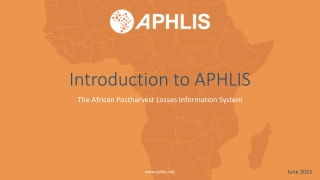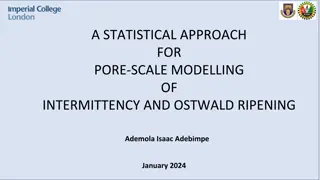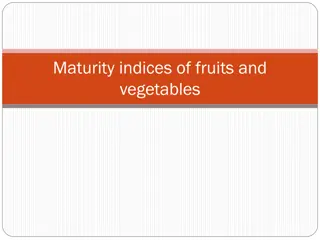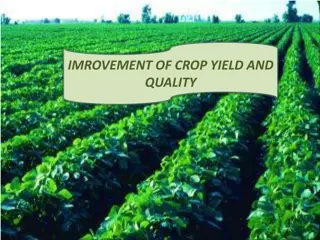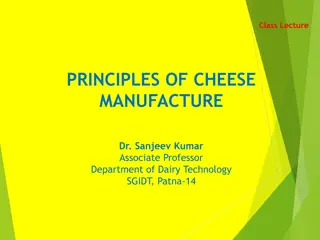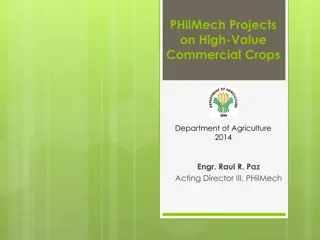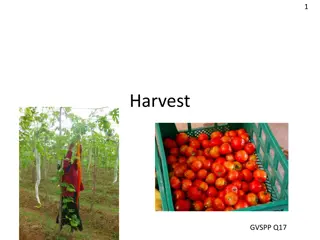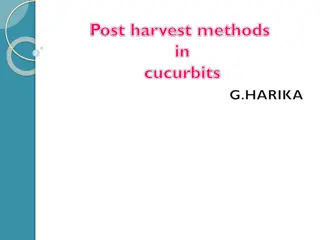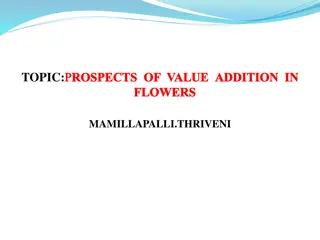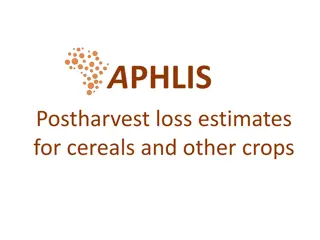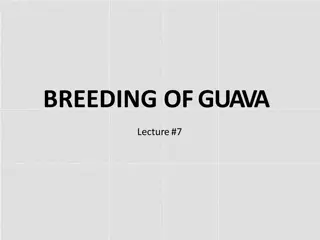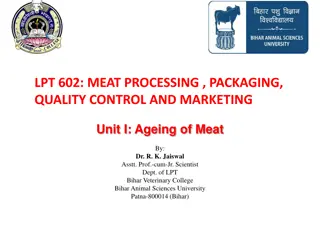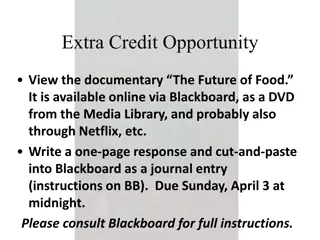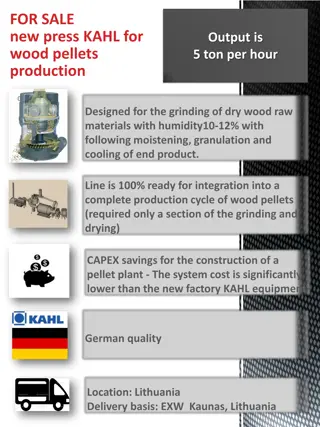Introduction to APHLIS
APHLIS, the African Postharvest Losses Information System, highlights the significant postharvest losses in Africa, occurring at various points in the value chain from harvesting to market storage. These losses, ranging from 30-50% of crop production, have detrimental consequences such as food insec
1 views • 30 slides
Statistical Modeling of Pore-Scale Intermittency and Ostwald Ripening
Using a statistical approach, this research delves into the pore-scale modeling of intermittency and Ostwald ripening in two-phase flows. The study challenges the traditional linear relationship between pressure gradient and capillary number, highlighting the impact of fluid intermittency on flow be
0 views • 15 slides
Everyday Chemistry Life Hacks Answer Key
Discover fascinating everyday chemistry life hacks through engaging videos covering topics like altering taste perceptions, speeding up ripening processes, improving baking results, and more. Uncover the science behind commonplace items and tricks that can be applied in your daily life to solve comm
1 views • 5 slides
Understanding Maturity Indices of Fruits and Vegetables
Maturity in fruits and vegetables is crucial for proper ripening, storage, and transportation. Picking produce at the right stage impacts flavor, quality, and shelf life. Harvesting too early or too late can result in issues like flavor loss, faster deterioration, and lower yields. Learn about the i
1 views • 24 slides
Enhancing Crop Yield and Quality Through Genetic Manipulation
This chapter explores methods to improve crop productivity and quality through genetic enhancements such as increasing yield and improving plant material quality. It discusses factors influencing crop productivity, such as solar radiation and photosynthetic efficiency, and factors determining crop q
0 views • 19 slides
Principles of Cheese Manufacture: Insights from Dr. Sanjeev Kumar's Lecture
Delve into the intricate world of cheese manufacturing as discussed by Dr. Sanjeev Kumar, covering topics such as milk selection, inhibitory substances, storage techniques, heat treatment, and the crucial process of ripening milk for cheese production. Gain insights into the key principles and pract
0 views • 15 slides
Innovative Projects on High-Value Commercial Crops in Agriculture
Cutting-edge projects by the Department of Agriculture focus on improving supply chains, assessing contaminations in organic vegetables, developing biomass biocomposite materials, and implementing non-chemical approaches for managing postharvest diseases in tropical fruits and preserving coffee. Stu
0 views • 22 slides
Harvesting and Postharvest Techniques for Quality Seed Production
Understand the importance of harvesting crops at the right timing to maximize seed quality. Learn about half-matured and full-matured stages, postharvest ripening, and indicators for precise timing. Discover the significance of counting days from flowering/pollination for determining harvest timing.
0 views • 24 slides
Post Harvest Methods in Cucurbits - Importance and Techniques
Different types of fruits and vegetables are grown in India due to varied agro-climatic conditions. India, being the second largest producer globally, faces significant post-harvest losses. Improper management practices such as careless harvesting, inadequate storage facilities, and processing metho
0 views • 39 slides
Flower Value Addition in Mamillapalli Thriveni
Value addition in flowers is a process that enhances the economic value and consumer appeal of floral commodities through genetic changes, processing, packaging diversification, and postharvest technology adoption. It not only boosts profitability but also serves as a rural development strategy, esp
0 views • 25 slides
Understanding MatCalc Approach for Modelling Precipitate/Matrix Interfacial Energy
MatCalc app provides a detailed examination of the precipitate/matrix interfacial energy modeling by considering various contributions to Gibbs energy, classical nucleation theory, coarsening (Ostwald ripening), and estimation methods like the Becker concept. The interface energy is crucial for unde
1 views • 33 slides
Postharvest Loss Estimates for Cereals and Crops: A Practical Guide
Explore APHLIS website to access science-based estimates of postharvest losses for cereals and crops using an interactive calculator tool in Excel. Discover how to input location-specific data, select crop and climate zones, and obtain quality estimates for different harvest seasons. The APHLIS Calc
0 views • 38 slides
Induction of Labor: Methods and Considerations
Induction of labor is done to achieve vaginal delivery before spontaneous onset, usually at 39 weeks or when medically necessary. Risks include failed induction, cesarean section, uterine rupture, prolonged labor, and infections. Cervical ripening methods help prepare the cervix for labor. The Bisho
0 views • 18 slides
Guava Breeding: Strategies and Objectives for Improved Cultivation
Guava, a hardy fruit grown in various states in India, has significant breeding objectives such as developing seedless varieties, enhancing pectin content, achieving uniform ripening, and improving resistance to pests. Various genotypes and floral biology aspects play a role in the breeding process.
0 views • 38 slides
Comprehensive Overview of the F-900 Ethylene Sensor
The F-900 Ethylene Sensor is a compact device designed for high ethylene sensitivity, real-time monitoring, and internal data storage. It aids in research, agricultural practices, and fruit ripening management by accurately measuring ethylene levels. The sensor's theory of operation involves oxidati
0 views • 30 slides
Understanding the Ageing Process of Meat in Meat Processing
Ageing of meat is a crucial process in meat processing that involves holding unprocessed meat at specific temperatures to enhance tenderness and flavor. This process, also known as ripening or conditioning, triggers physical and chemical changes in protein structure, collagen, and proteolysis. Diffe
0 views • 11 slides
The Impact of GMOs on Agriculture and Society
Genetically Modified Organisms (GMOs) are created through genetic engineering techniques like biolistics and Agrobacterium tumefaciens. These modifications are made to confer herbicide resistance, pathogen resistance, control fruit ripening/rotting, and increase production. The documentary explores
2 views • 45 slides
Grinding and Granulation Equipment for Wood Pellets Production
For sale: New press KAHL for wood pellets production, designed for a 5-ton output per hour. The system includes grinding, moistening, granulation, and cooling of end products, fully integrated into a production cycle. This equipment line is located in Lithuania and ready for immediate operation, off
0 views • 5 slides
